Maximizing Tesla Repairs with Available Loaners Near You

Tesla loaner availability during repairs varies by location, vehicle model, and shop resources. Urba…….
In today’s rapidly evolving automotive landscape, the concept of a “Tesla loaner during repair” has emerged as a game-changer for electric vehicle (EV) ownership. This innovative service offers Tesla owners a temporary replacement vehicle while their primary EV undergoes necessary servicing or repairs, ensuring minimal disruption to their daily lives. The rise of this practice reflects the growing maturity and acceptance of electric vehicles, as well as the forward-thinking approach of automakers in providing comprehensive customer experiences.
This article delves into the intricacies of Tesla loaner services during repair, exploring its definition, global impact, economic implications, technological advancements, regulatory landscape, challenges, and future prospects. By the end, readers will have a profound understanding of this critical aspect of EV ownership and its potential to shape the automotive industry’s future.
A Tesla loaner during repair refers to a temporary replacement vehicle provided by Tesla dealerships or authorized service centers to their customers while their electric vehicle is under maintenance, repair, or awaiting service parts. This service aims to bridge the mobility gap that often arises when owning an EV, ensuring owners can continue their daily routines without significant inconvenience.
The core components of this program include:
Replacement Vehicles: Tesla typically offers its customers a selection of loaner vehicles, ranging from newer models to older ones, depending on availability and customer preferences. These vehicles are often well-equipped and designed to provide a similar driving experience as the customer’s primary EV.
Service Centers and Dealerships: Authorized Tesla service centers or dealerships facilitate the loaner program by managing the allocation of replacement vehicles and ensuring proper maintenance. They work closely with customers to schedule drop-offs and pick-ups, coordinate repairs, and provide excellent customer service throughout the process.
Parts and Service Management: Efficient management of service parts is crucial for successful loaner programs. Tesla deals with suppliers and manufacturers to secure necessary parts promptly, ensuring that repairs are completed in a timely manner and customers receive their temporary vehicles without delay.
The concept of loaner cars during repair is not new, but its application within the premium electric vehicle market, specifically Tesla, has gained significant traction in recent years. Historically, traditional dealerships often provided temporary loaner vehicles to service customers, but these were usually limited to internal use or offered as a courtesy.
Tesla’s entry into this space marks a shift towards enhancing customer experience and satisfaction. By offering loaners, Tesla addresses a common pain point for EV owners—the potential inconvenience of being without their vehicle during maintenance or repairs. This approach not only improves customer loyalty but also aligns with Tesla’s reputation for innovation and forward-thinking practices.
The adoption of Tesla loaner services during repair extends beyond the United States, with several other countries embracing this concept to cater to their growing EV markets. Each region adapts this practice based on local regulations, infrastructure, and customer preferences:
Europe: Many European countries have robust EV adoption rates and supportive government policies. Dealerships in Germany, for instance, offer a range of loaner vehicles, from compact city cars to luxury sedans, ensuring customers can continue their daily commutes without interruption. In the UK, Tesla owners can choose from a fleet of fully electric loaner cars, reflecting the region’s commitment to sustainable mobility.
Asia: China, being the global leader in EV sales, has seen dealerships implement comprehensive loaner programs. Some Chinese automakers offer not only temporary vehicles but also ensure a smooth handover process, including paperwork and insurance, to minimize customer hassle. Japan, known for its hybrid technology, provides efficient loaner services, leveraging its advanced automotive infrastructure.
North America: Tesla’s home market has seen significant growth in EV adoption, leading to more sophisticated loaner programs. In addition to the standard loaner cars, some North American dealerships offer premium options, such as high-end SUVs or performance vehicles, catering to diverse customer preferences.
Regional trends reveal interesting variations in Tesla loaner services:
| Region | Trend/Difference |
|---|---|
| Europe | Emphasis on fully electric loaners; availability of premium vehicles; robust customer service training for seamless handover |
| Asia | Efficient use of local automotive infrastructure; integration with advanced technology and connectivity; potential for eco-friendly loaner options |
| North America | Diverse range of loaner vehicles; focus on convenience and customer experience; potential partnerships with ride-sharing services |
The introduction of Tesla loaner services during repair has had a notable impact on the automotive market, both in terms of customer behavior and business strategies. Here are some key economic aspects:
Customer Satisfaction and Retention: By offering temporary replacement vehicles, Tesla enhances customer satisfaction, particularly for those relying on their EVs for daily transportation. This can lead to higher customer retention rates and positive word-of-mouth referrals.
Market Positioning: Loaner programs influence brand perception, positioning Tesla as a forward-thinking automaker that prioritizes customer needs. This strategic move can attract new customers and strengthen brand loyalty among existing ones.
Investment Opportunities: The demand for loaner vehicles creates opportunities for automakers to invest in a specialized fleet management system. Additionally, partnerships with rental car companies or ride-sharing services could generate revenue streams and expand business models.
From an economic perspective, Tesla loaner programs present both advantages and challenges for dealerships and service centers:
Advantages:
Challenges:
Technological advancements play a pivotal role in the success and evolution of Tesla loaner services during repair:
Digital Platforms: The integration of digital platforms enables seamless communication between customers, dealerships, and service centers. These platforms allow for real-time tracking of loaner vehicles, efficient scheduling, and paperless paperwork, enhancing overall customer experience.
Fleet Management Software: Advanced fleet management systems help dealerships optimize their loaner vehicle fleets, predict maintenance needs, and streamline inventory management. These tools provide valuable data insights to support strategic decision-making.
Connected Vehicles: As EVs become increasingly connected, loaner vehicles can leverage these technologies to offer additional services like remote diagnostics, software updates, and real-time performance monitoring, enhancing the overall ownership experience.
The future of Tesla loaner services holds immense potential for technological integration and innovation:
Autonomous Loaner Vehicles: With advancements in autonomous driving technology, Tesla could explore offering self-driving loaner cars, providing customers with a unique and hands-free experience.
Personalized Loaner Experiences: Utilizing data analytics, dealerships can offer tailored loaner experiences, such as customizing vehicles based on customer preferences or integrating personal settings from their primary EV.
Smart Logistics: Implementing smart logistics solutions can optimize the allocation of loaner vehicles, ensuring they are deployed efficiently and reducing idle time. This includes leveraging predictive analytics to anticipate service demands.
The development and operation of Tesla loaner services during repair are shaped by various policies and regulations, which vary across regions:
Warranty and Service Coverage: Policies regarding warranty extensions or temporary coverage for loaner vehicles ensure that customers are protected during the repair process. Regulations may mandate minimum service levels and part replacements to maintain customer satisfaction.
Insurance and Liability: Dealerships must navigate insurance requirements, including liability coverage for loaner vehicles. Regulatory bodies often provide guidelines for insuring temporary vehicles to protect both dealerships and customers.
Environmental Standards: In regions with strict emissions regulations, the use of loaner vehicles should align with these standards. This may include requiring low-emission or zero-emission vehicles for such services.
Policies and regulations significantly influence the adoption and evolution of Tesla loaner programs:
Standardization: Consistent regulatory frameworks encourage standardization across dealerships, ensuring customers receive consistent levels of service regardless of the service center they visit.
Innovation Stimulation: Well-defined policies create an environment conducive to innovation, with automakers and startups exploring new technologies and business models to enhance loaner services.
Consumer Protection: Robust regulations protect consumers’ rights, ensuring dealerships provide transparent and fair services, which, in turn, strengthens consumer trust in the industry.
While Tesla loaner services during repair offer numerous benefits, they also come with challenges that require strategic solutions:
Initial Investment and Costs: Setting up a comprehensive loaner program involves significant upfront investment in vehicles, infrastructure, and technology. Dealerships must carefully consider the financial implications and potential return on investment.
Inventory Management Complexity: Managing a fleet of loaner vehicles requires meticulous planning to ensure availability while minimizing costs. Balancing supply and demand can be challenging, especially in regions with fluctuating EV adoption rates.
Customer Expectations and Training: Dealership staff must be trained to manage customer expectations regarding loaner vehicle selection, maintenance, and potential delays. Setting clear communication standards is essential to ensure positive customer experiences.
Criticisms of Tesla loaner programs often center around operational inefficiencies and customer inconvenience. To overcome these issues, dealerships can:
Enhance Communication: Improve communication channels and provide real-time updates to customers regarding their vehicle’s repair status and available loaner options. Transparent communication builds trust and reduces frustration.
Expand Fleet Diversity: Offer a broader range of loaner vehicles to cater to different customer preferences, including those with specific mobility needs or accessibility requirements.
Streamline Service Processes: Implement efficient service management systems to reduce turnaround times and ensure timely vehicle availability. Standardized procedures can minimize delays and enhance overall operational efficiency.
Tesla Germany has established a benchmark for loaner services with its comprehensive program, designed to cater to the diverse needs of its customers. Key features include:
In Japan, Tesla has collaborated with local ride-sharing services to enhance its loaner program. By partnering with popular ride-hailing platforms, Tesla owners can easily access temporary vehicles and even continue their rideshare services during repairs. This innovative approach leverages existing mobility infrastructure and caters to the unique needs of urban commuters.
North American dealerships have embraced premium loaner options, recognizing that EV ownership appeals to a diverse range of customers. One dealership in California offers high-end SUVs and performance sedans as loaners, ensuring customers can maintain their desired level of comfort and convenience during repairs. This strategy has contributed to the dealership’s reputation for exceptional customer service.
The future of Tesla loaner services during repair holds immense potential for growth and innovation:
Global Expansion: As EV adoption accelerates worldwide, Tesla loaner programs are expected to expand globally, bringing these services to new markets and regions with growing demand.
Sustainable Fleet Management: With a focus on sustainability, dealerships may explore eco-friendly loaner options, such as hybrid vehicles or electric bikes, aligning with evolving customer preferences and environmental regulations.
Personalized Experiences: Utilizing advanced analytics and customer data, Tesla could offer personalized loaner experiences, including vehicle settings, entertainment systems, and connectivity preferences tailored to individual customers.
Dealerships and service centers should consider the following strategic directions:
Integration with Smart Mobility Solutions: Leveraging advancements in smart cities and mobility as a service (MaaS), dealerships can offer integrated loaner experiences, connecting temporary vehicles with ride-sharing, public transport, and other mobility options.
Data-Driven Fleet Management: Implementing data analytics to predict repair trends, optimize inventory, and enhance customer preferences will be crucial for efficient loaner service management.
Partnerships and Collaborations: Exploring strategic partnerships with technology companies, insurance providers, or rental car services can expand service offerings and create additional revenue streams.
Tesla loaner during repair represents a significant advancement in the EV ownership experience, addressing a critical pain point for Tesla owners. This comprehensive overview highlights the global impact, economic implications, technological advancements, policy frameworks, challenges, and future prospects of this innovative service.
As the automotive industry continues to evolve, Tesla’s approach to customer-centric services is poised to shape the future of mobility. By embracing technology, sustainability, and customer satisfaction, dealerships can deliver exceptional loaner experiences that reinforce brand loyalty and drive the adoption of electric vehicles worldwide.
Q: How do I know if my Tesla dealership offers a loaner during repair?
A: Many Tesla dealerships prominently display this service on their websites or provide information during customer interactions. You can also inquire directly with your local service center to confirm availability and the process for requesting a loaner.
Q: Are there any costs associated with using a Tesla loaner?
A: Typically, the use of a loaner vehicle during repair is included in the cost of the necessary maintenance or repair work. However, some dealerships may have specific policies regarding insurance, rental fees, or additional charges for extended use.
Q: Can I choose the make and model of the loaner vehicle?
A: The availability of loaner vehicles can vary by dealership and region. While some dealerships offer a range of options to cater to different customer preferences, you may not have complete control over the specific make and model.
Q: What happens if my Tesla loaner vehicle needs repairs?
A: Dealerships will prioritize your original vehicle for repair as quickly as possible. If there are delays, they should provide alternative transportation options or keep you informed about the status of both vehicles.
Q: How do I ensure a smooth loaner experience during repair?
A: Clear communication with your dealership is key. Provide them with any specific requirements or preferences for your loaner vehicle and maintain open lines of communication regarding repair updates.

Tesla loaner availability during repairs varies by location, vehicle model, and shop resources. Urba…….

Tesla owners needing repairs should consider loaner vehicle availability, which is regional and subj…….
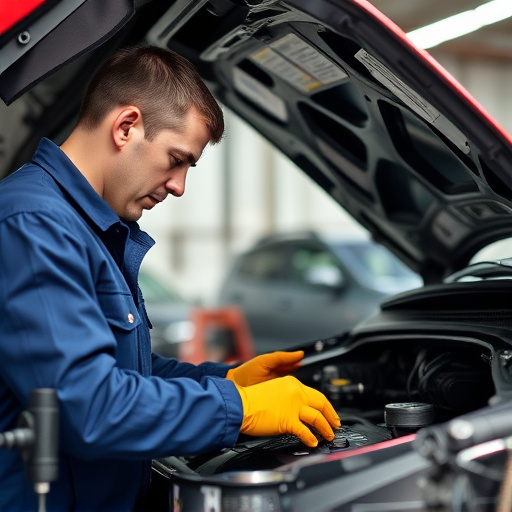
Tesla offers loaner vehicles during repairs, covering maintenance to collision damage. Understanding…….

Tesla offers loaner cars during repairs to ensure customers maintain mobility and receive high-quali…….
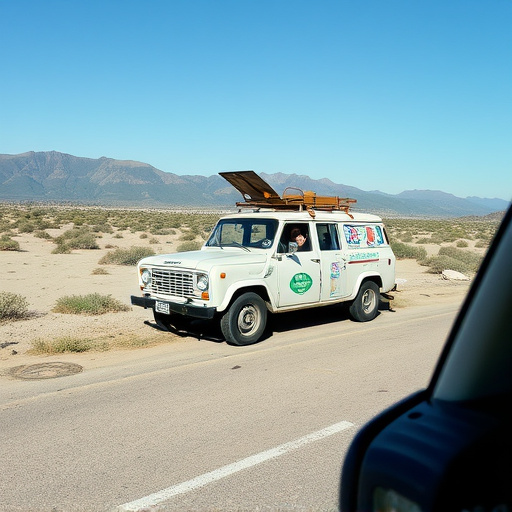
Tesla offers loaner cars for safety and functional repairs, but cosmetic changes like extensive pain…….

Tesla offers loaner cars for Model S, 3, X, and Y owners during repairs, minimizing disruption with…….
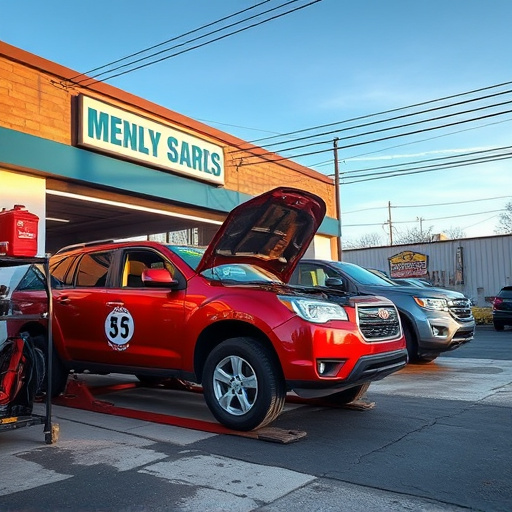
Tesla offers a convenient Tesla loaner during repair service, providing customers with a like-new te…….
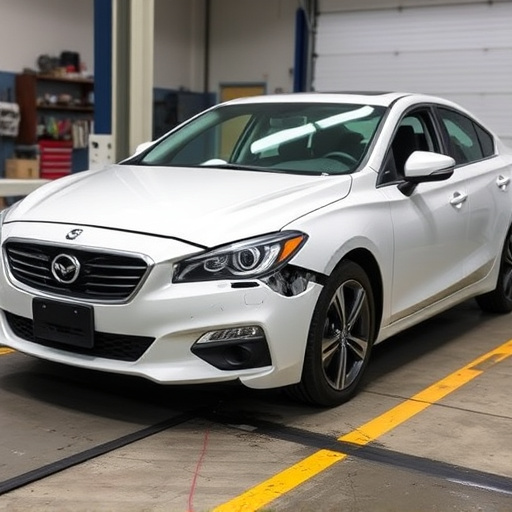
Tesla provides a complimentary loaner vehicle service for minor incidents and extended repairs, stre…….
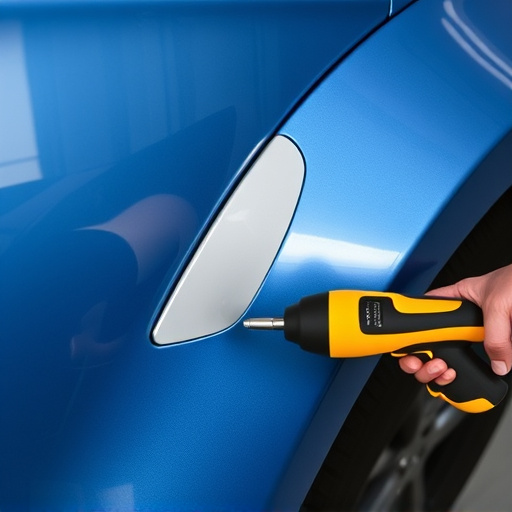
Tesla offers loaner vehicles for significant repairs, but not all cosmetic issues are covered. For m…….